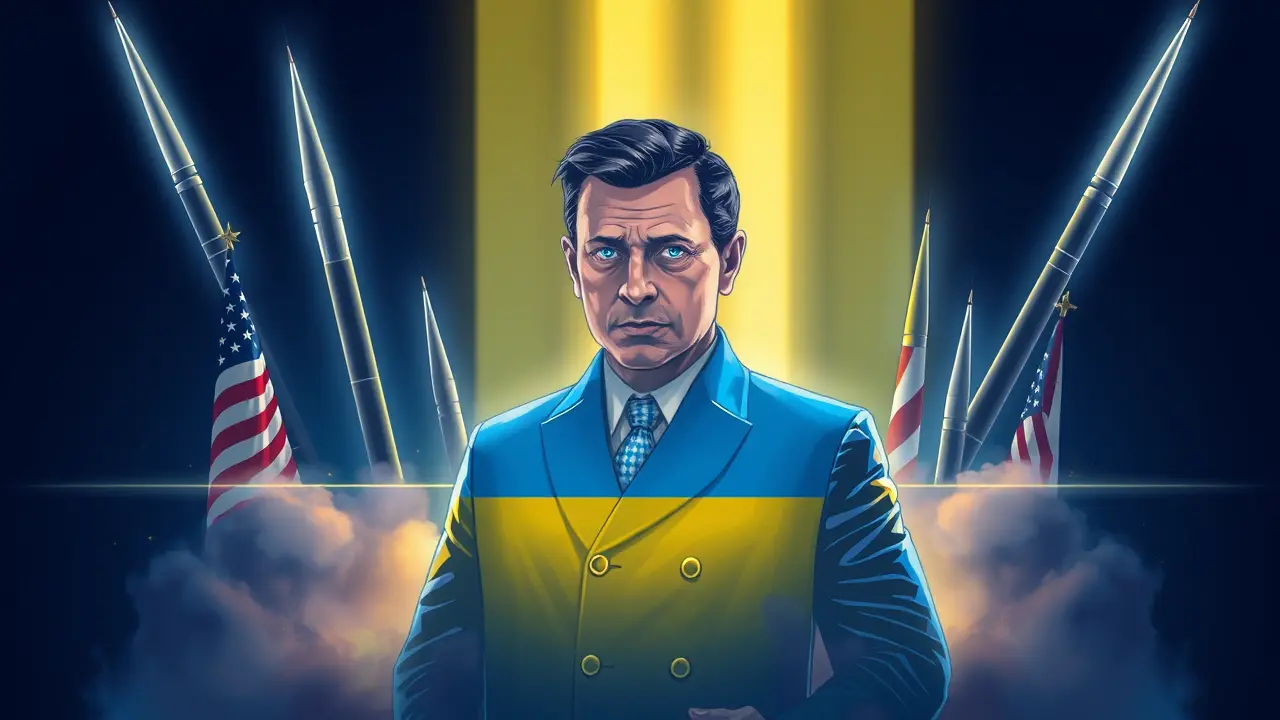Zelensky Seeks Missiles in Washington Amid Trump-Putin Talks
In a diplomatic gambit freighted with the gravity of history, Ukrainian President Volodymyr Zelensky is set to embark on a critical mission to Washington, seeking to secure advanced missile systems from his American allies. This urgent appeal comes directly on the heels of a seismic development in global statecraft: the announcement that U.S. President Donald Trump has agreed to face-to-face talks with Russian counterpart Vladimir Putin.The timing is not merely coincidental but profoundly strategic, casting this week as a potential inflection point in the protracted conflict in Eastern Europe. One can draw a stark parallel to the Munich Agreement of 1938, where a Western power, seeking to avoid a larger conflict, engaged in direct dialogue with an expansionist autocrat, ultimately at the expense of a smaller democratic nation's sovereignty.The core question that now hangs over the West Wing and the halls of Congress is whether the United States will fortify Ukraine's defensive capabilities or, through a policy of accommodation with the Kremlin, effectively signal a green light for further Russian aggression in the region. The requested missile systems are not merely weapons; they are a tangible measure of American commitment to the post-Cold War order.A refusal, or even a hesitation, would be interpreted in Moscow not as prudence but as permission, potentially unraveling decades of NATO cohesion and emboldening other revisionist powers from Beijing to Tehran. Conversely, a robust provision of arms carries its own perils, escalating the proxy war into a more direct confrontation between nuclear-armed giants, a scenario that recalls the most dangerous moments of the Cuban Missile Crisis.The Trump-Putin dialogue itself is a subject of intense analytical scrutiny. Is this a genuine pursuit of de-escalation, a masterstroke of realpolitik aimed at disentangling the U.S. from a costly foreign entanglement? Or is it, as some veteran Kremlin-watchers fear, a process that could legitimize the territorial gains acquired through brute force, setting a catastrophic precedent for the 21st century? The shadow of the 2014 annexation of Crimea looms large, a previous instance where the international response was deemed by many as insufficient, thereby encouraging the larger invasion of 2022.President Zelensky, once an actor playing a president on television and now a wartime leader embodying a nation's resilience, finds himself in a role reminiscent of Winston Churchill in the 1930s, tirelessly warning a reluctant West of the gathering storm. His task in Washington is not just to present a list of military needs but to make a compelling moral and strategic case for why Ukrainian sovereignty is inextricably linked to American and European security.He must navigate a complex domestic American political landscape, where support for Ukraine, once broadly bipartisan, has become a contentious fault line, with significant factions advocating for a retrenchment of American power and a focus on internal affairs. The outcome of these parallel diplomatic tracks—Zelensky’s plea and the Trump-Putin summit—will likely define the geopolitical map for a generation. Will the West hold the line, or are we witnessing the beginning of a new era of spheres of influence, where larger powers dictate the fates of their smaller neighbors? The answers will not be found in the talking points of press conferences but in the subsequent flow of arms, the movement of troops, and the shifting red lines on a map of Ukraine that has already seen too much bloodshed.
It’s quiet here...Start the conversation by leaving the first comment.
